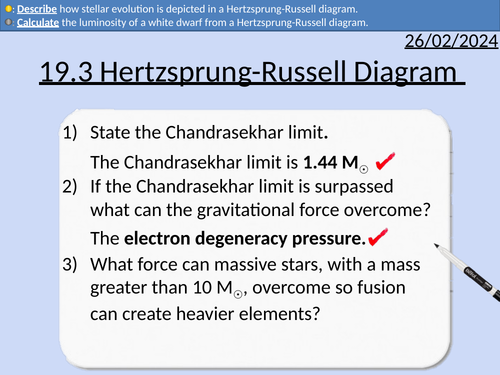
OCR A level Physics: 19.3 Hertzsprung-Russell Diagram
Module 5 Newtonian World and Astrophysics
This PowerPoint is a whole lesson included with student activities, animated answers, homework questions with answers provided.
This lesson covers:
- Definition of luminosity
- Usual axis choice of a HR diagram.
- Identifying the positions of the main sequence, white dwarfs, red giants, and red supergiants.
- Description of how stellar evolution is shown in a Hertzsprung-Russell diagram.
Something went wrong, please try again later.
This resource hasn't been reviewed yet
To ensure quality for our reviews, only customers who have purchased this resource can review it
Report this resourceto let us know if it violates our terms and conditions.
Our customer service team will review your report and will be in touch.
£2.50
